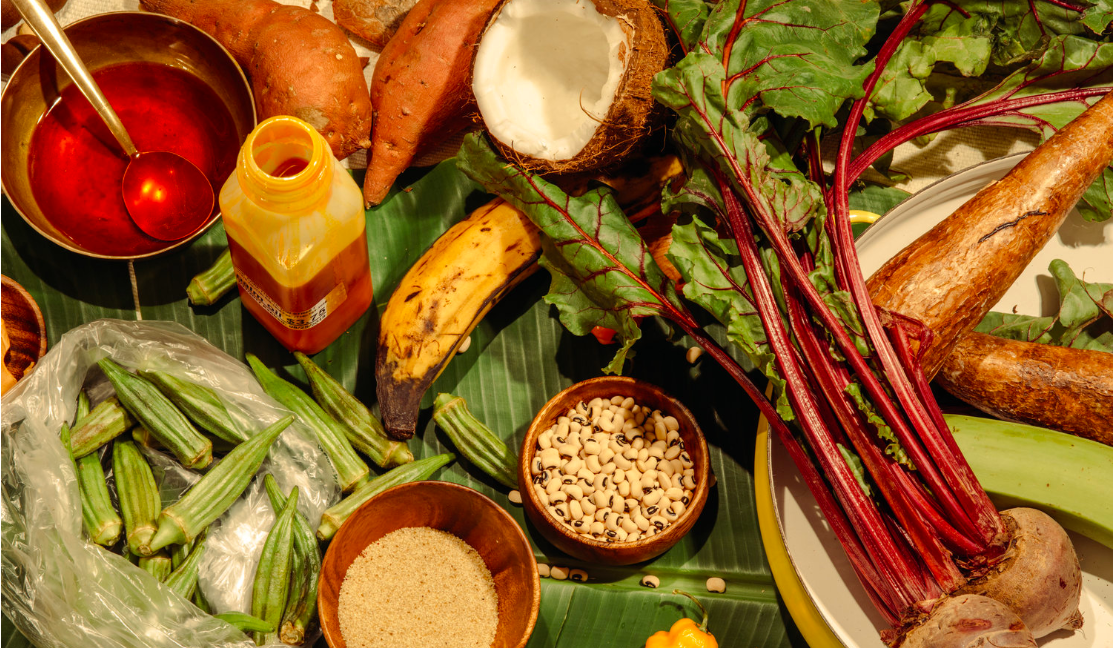5 Ways To Be the Best Host

Pierre Thiam is the chef, author, and social activist known for putting West African cuisine on the global fine dining map. He’s the executive chef and co-owner of Teranga in New York City and Yolélé Foods, which has products available in Whole Foods and Amazon. Born and raised in Senegal, Pierre’s a master of blending tradition with a modern point of view. Here, he shares his tips on how to be the most gracious host — and even how to turn unexpected guests into blessings.
Make sure to listen to the full interview with Pierre.
It’s Time for Extreme Hospitality With Pierre Thiam transcript
1. Welcome every guest as a blessing.
In Senegal, we have a word for hospitality: teranga. And teranga is the word that symbolizes one of our highest values. And Teranga is more than just hospitality. The way you would translate it here, it’s really the way of giving the best of what you have. So in Senegal, you go to any home, even if you are not expected, you would be offered something and usually it would be food. They would want to share that with you.
They would give you the choicest parts all the time and all of that to say how this belief of offering, especially the unexpected guest, is actually some sort of an angel. That’s a superstition, right? It’s an angel that’s bringing some blessings to you. And for you to receive those blessings, you have to make sure that person gets some of your food.
2. Accept the hospitality of others with grace.
The right way to receive it is actually to receive it. And if you’re unexpected and you come to a house and they give you something, you have to at least, even if you’re not hungry, you have to take a spoonful and eat or take a handful. We eat with our hands too, the food tastes better this way, so receive it. Refusing is not correct, and it’s actually denying the blessings that I’m trying to get from you.
3. Remember that food brings us together.
This is again a way to see food as an agent of unity. I noticed one ingredient and how it transcends borders, which is really something that we need to pause and think about it, it transcends borders, it’s embraced by the cultures, but it also takes specific ways of that culture because of the environment.
We wanted the food to transcend the borders even more, to tell the real stories, because those borders are not real. They are not especially when it comes to Africa, those borders were like, imposed upon us in some place in Berlin some time ago, for that had no reality with what the continent was going through with that just for the interest of the colonialists. So through this food, we are reclaiming this, who we are without these borders that will imposed upon us.
4. Food can heal, too.
Food is there at every moment of your life from the birth to the end, to death. And I talked about my father’s funeral, my father’s passing, and through the food, I mean, so many people show up to the funeral because there’s going to be food. And sometimes you don’t even know if those people really knew your father or anything.
And then the whole house and courtyard and people eating outside, it goes even to the neighbor’s house because that’s the community. So everyone is contributing, and the food is amazing. How you can cook so much food with open fire, and it’s like happening like that for a whole period of time. And then they’ll come back a week later for another way of celebrating him through food again. And then 40 days later, and then the following year at the anniversary, his food is always there.
5. Think of food as your personal story, not just a meal.
We have something called the griots, right? The storytellers, and the storytellers are there at all the family events, all the occasions.
And they dare to tell the story of your line. I mean, they go way back. It’s a family in its own self, and that’s transmitted from generation to generation. And to get back to food, I like to see us as griots as food tellers because when you look at the food that we represent in the traditional West African food, it’s food that’s been transmitted from generation to generation, from mother to daughters, from grandmother to mother, and each of those recipes is a story.
6. Leftovers are crucial.
Definitely [serve 50% more food than you think you need]. And there’s got to be leftovers. People have to have the opportunity of serving themselves a couple of times, and that’s so important. Abundance is part of the qualification of a good meal. People have to feel like they are being served generously and obviously do not waste food. So it’s had to be also in a way that is delicious, people enjoy it and it’s abundant. And I’m trying to think of a word in Wolof to translate. It is kind of difficult, but you have rest and rep. So you have digested it, and that may sound gross, cultural, you burped, right?
So it’s one way to do it to you want your guests to eat so that they burp and then they burp, that means they’re full of food. So it needs to be generous.





